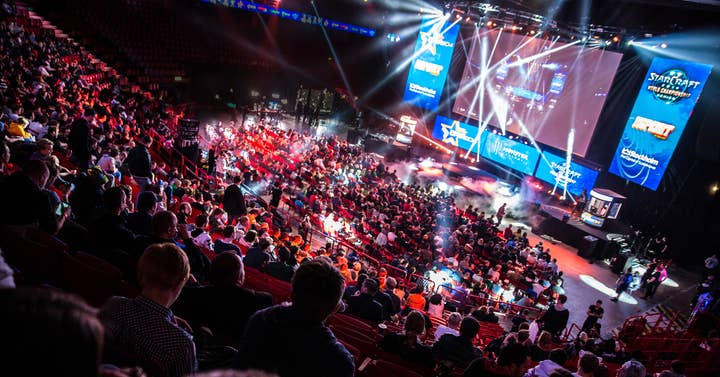eSports' "path to profitability farther off than VR" for publishers - Pachter
Despite the slow ramp up of headsets, VR should monetize better for publishers in the next few years, the analyst says
Virtual reality dominated this year's Game Developers Conference and it's sure to grab numerous headlines at next week's E3 Expo in Los Angeles, but for the average consumer, VR will have little impact on their lives in 2016. The installed bases will just be too low, but despite the slow adoption curve, Wedbush Securities' Michael Pachter believes game publishers will be able to make more money on VR than eSports over the next few years.
"We expect VR HMDs to sell fewer than 5 million units in 2016, and expect to see that sales figure double in 2017 and to double again in 2018. Once the installed base of HMDs has reached 20 million or so, it is possible that one or more of our covered publishers will begin to monetize its IP and to generate profits from virtual reality," he noted.
"eSports is also a 2016 event, but the path to revenue and profitability is probably farther off than it is for virtual reality," he continued. "We expect the publishers to take baby steps with eSports, investing modest sums sponsoring and promoting tournaments, as each endeavors to find the right balance of opportunity. Over the next 5 - 10 years, we think that eSports can generate eyeballs and revenues that are on par with established sports such as NBA basketball or Major League Baseball."
In an email to GamesIndustry.biz, Pachter did clarify that he's talking strictly about the impact of eSports on the major publishers that Wedbush covers. As an overall revenue generator, eSports is of course much larger worldwide at the moment.
Pachter sees the large market opportunity in VR as being at least 3 - 5 years away, so Wedbush does not expect publishers to deliver meaningful revenue contribution from VR anytime soon, but it could be even longer for eSports. While Pachter expects eSports ultimately to make a big difference for the publishers, the market could take 5-10 years to grow substantially.
What's interesting is that the two biggest publishers, Activision and EA, have taken very different approaches to eSports. Activision, which acquired Major League Gaming, is looking to make a dent with its own eSports channels and tournaments; the idea is to generate money from advertising, sponsorships, merchandising and ticket sales from tournaments. EA, on the other hand, "looks at eSports as an opportunity to drive interest in its games, similar to the way that AYSO soccer drives purchases of athletic shoes and uniforms," Pachter noted.
"On balance, we favor EA's approach, as we believe it is a more realistic, albeit less lucrative, near-term opportunity. We think that by sponsoring tournaments, EA can create a pyramid of different skill levels, with entry level players at the bottom of the pyramid and professional players at the top. This is analogous to soccer, with hundreds of millions playing in youth soccer leagues and only several hundred players playing professionally. As players progress to higher levels in the pyramid, EA is making a bet that they will be more active players of the underlying eSports game, and will spend ever-increasing amounts for the game itself, on downloadable content for the game, and on microtransactions that will enhance their gaming experience," Pachter continued.
"Activision's approach, on the other hand, appears to rely upon its ability to generate fan and viewing interest in tournaments based on its popular Call of Duty, StarCraft II, Hearthstone, Heroes of the Storm and recently released Overwatch brands. We think that the company's desire to be 'the ESPN of eSports' is misguided; in our view, if anyone will be the ESPN of eSports, it's likely to be ESPN itself. It is important to note that neither FIFA nor the NFL, owners of the two most watched televised sports in existence, generate significant revenues from their proprietary broadcasts of their respective sports on their own television networks. Instead, the sports leagues generate the bulk of their television revenues from licensing the rights to broadcast to the various broadcast networks."








